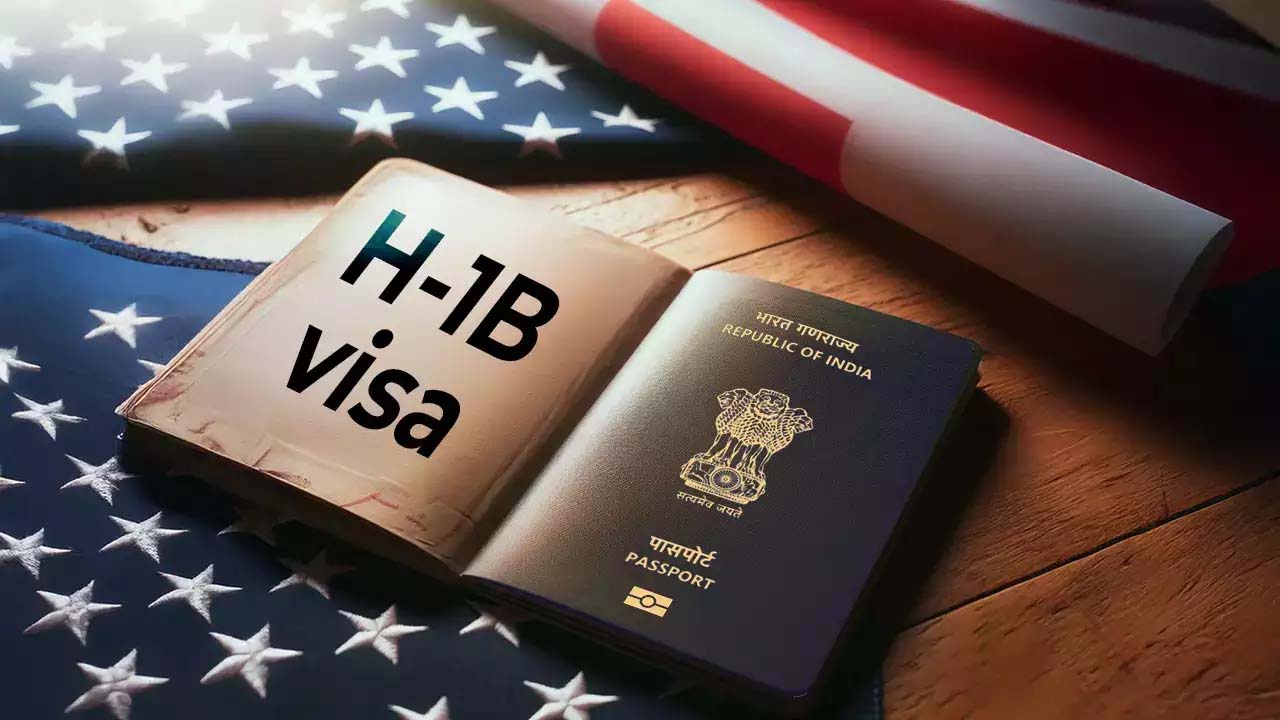Several Indians have lashed out at US President Donald Trump’s executive order to impose a USD 100,000 (over Rs 88 lakh) annual fee on H-1B visas, saying the move will “kill” the American economy and boost the Indian economy.
magine being an ambitious Indian engineer who has just secured a dream role at a global tech giant like Google or Microsoft. The excitement of working in Silicon Valley is at its peak—until reality sets in. To secure your H-1B visa, your employer now faces an astronomical cost: USD 100,000 (around ₹88 lakh) just to complete the paperwork and keep you in the U.S.
That’s the situation unfolding after U.S. President Donald Trump signed a new proclamation on Friday, enforcing a $100,000 annual fee on H-1B visas. This sweeping change is set to take effect from September 21 at 12:01 am ET, with even current visa holders at risk of denial of entry if their employers fail to pay the steep fee.
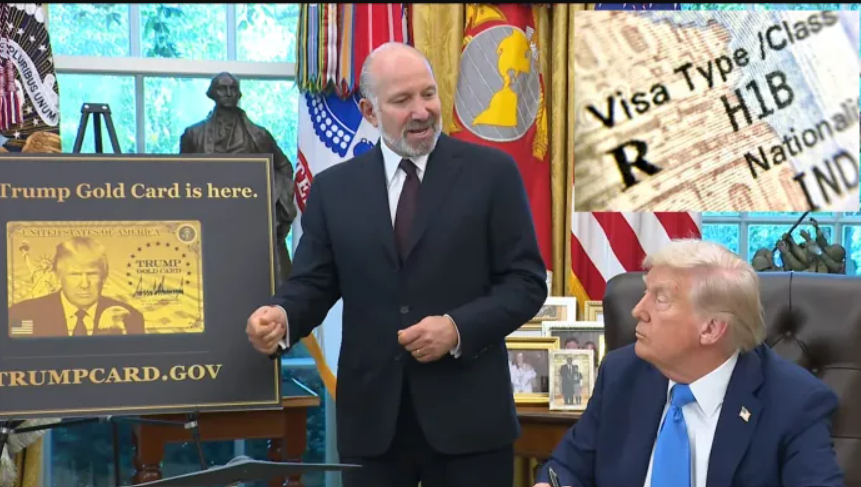
The Trump administration argues that the move is meant to crack down on misuse of the H-1B program, which has long been criticized for displacing American workers and lowering wage standards. Indian professionals, who make up the majority of H-1B holders, are the most affected by this sudden shift.
However, the story isn’t entirely bleak. While the policy is a major hurdle for those aspiring to work in the U.S., it could also reshape India’s tech landscape in unexpected ways. Experts believe this could accelerate the reverse brain drain, pushing skilled talent back to India and fueling growth in the domestic startup ecosystem. For the world’s largest democracy, this disruption may ultimately lead to a renaissance in innovation, entrepreneurship, and homegrown technological development.
AMITABH KANT, POLITICIANS X USERS IN INDIA SLAM TRUMP
Social media users and renowned faces, including former diplomats and former Niti Aayog CEO Amitabh Kant, have slammed Trump’s move, asserting that the massive USD 100,000 H1-B fee will destroy the American economy and not the Indian economy.
Kant, who served as India’s Sherpa for G20, said Trump’s order to make sweeping changes to the H-1B programme was America’s loss and India’s gain. He stressed that the USD 100,000 H1-B fee will choke US innovation and turbocharge India’s.
Donald Trump’s 100,000 H-1B fee will choke U.S. innovation, and turbocharge India’s. By slamming the door on global talent, America pushes the next wave of labs, patents, innovation and startups to Bangalore and Hyderabad, Pune and Gurgaon . India’s finest Doctors, engineers,…
— Amitabh Kant (@amitabhk87) September 20, 2025
“By slamming the door on global talent, America pushes the next wave of labs, patents innovation and startups to Bangalore and Hyderabad, Pune and Gurgaon. India’s finest doctors, engineers, scientists, innovators have an opportunity to contribute to India’s growth and progress towards Viksit Bharat,” he tweeted.
The H-1B visa programme has been a significant factor in India’s brain drain, allowing the US to acquire top Indian talent, particularly in tech, without bearing the significant training costs borne by Indian institutions and the nation. While some argue this creates global networks and remittances for India, the overall impact is seen as a loss of valuable human capital.
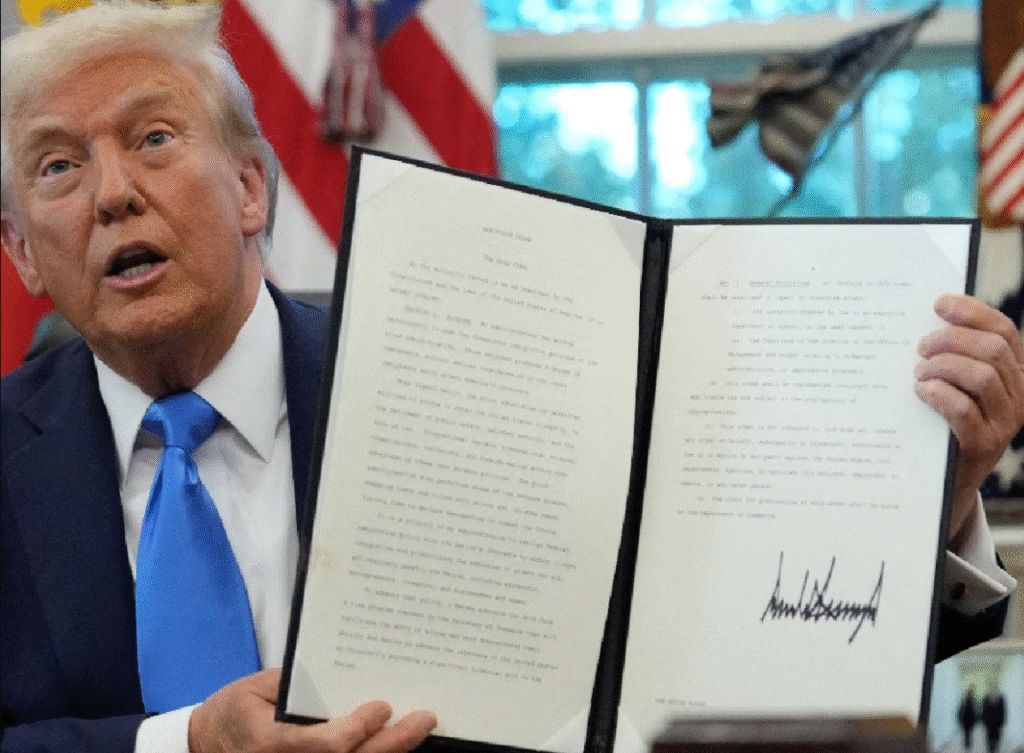
But, Trump’s move to massively hike the H-1B visa fee has sparked an opportunity for Indians working in the US to return and contribute their skills and ideas for the homeland. This could also significantly boost the ‘Aatmanirbhar Bharat’ programme, which the government is heavily focusing on in various sectors, be it defence, technology or R&D.
BJP leader Boora Narsaiah Goud slammed Trump’s move, calling it a “sinful and cruel” idea.
“Trump and his action imposing USD 1 lakh on H-1B visas will destroy the American economy more than the Indian economy. His sinful, cruel ideas to target the Indian economy are going to hurt America more than India. Previously, the majority of countries refused cryogenic fuel for Isro. And we became Atmanirbhar Bharat. Now, Isro is competing with major powers in the world,” he told news agency ANI.
“It is a lesson for the Indian politicians not to be happy in the four walls. Let us unite under the leadership of PM (Narendra) Modi. Let us turn these hurdles into opportunities to think beyond,” he said.
Voicing similar sentiments, former diplomat KP Fabian said Trump’s move will impact Indians and provide a good part of the brain power required to take the American economy forward.
“To put it mildly, it’s an atrocity and unnecessary. It will hit Indians, but it will also hit the American economy because the young Indians are providing a good part of the brain power required to take the American economy forward. He (US President Trump) is keen on scoring a self-goal,” he told ANI.
Apart from this, social media users in India too said Trump’s move will kill the US economy and at the same time, create opportunities for Indians working in the US to contribute to nation-building and demand better infrastructure from the government.
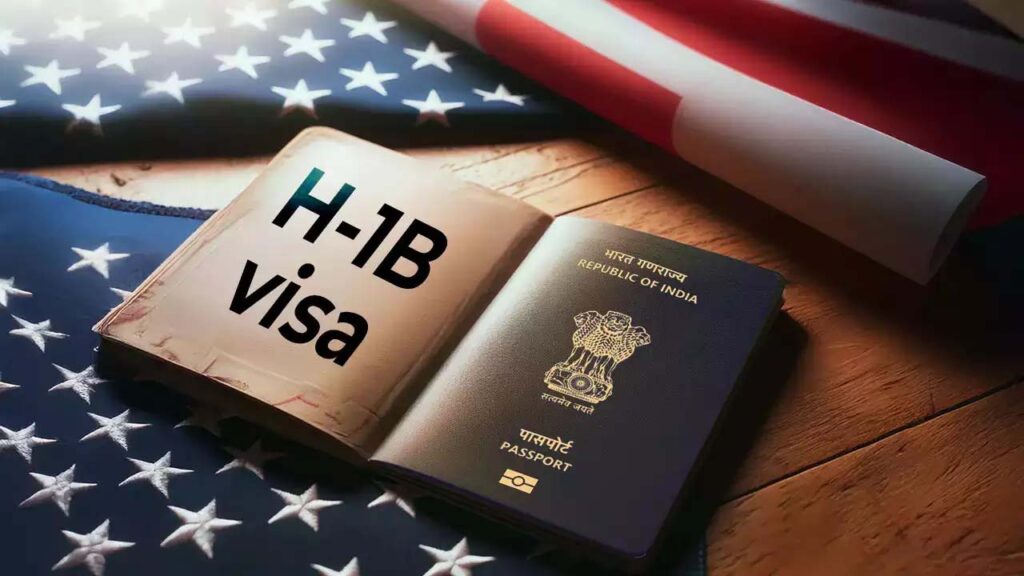
“Trump slaps Rs 90 lakh fee on H-1B visas. It’s good for india, those ultra-rich, whose voice actually matters but sent their kids abroad, will now keep them here and demand better infrastructure from the government,” an X user wrote.
Another said, “Trump just killed the American economy by imposing a USD 100k fee for H-1B visa!”
HOW CAN INDIA DIVERSIFY AND BOOST ITS TALENT POOL?
Fresh numbers from the U.S. Citizenship and Immigration Services (USCIS) reveal that Indians made up 72% of the nearly 400,000 H-1B visas issued between October 2022 and September 2023. That dominance underlines just how deeply Indian professionals are tied to the U.S. tech economy.
But with the sudden spike in costs and barriers to hiring Indian workers abroad, the equation may soon change. Experts believe this shift could encourage India’s own technology sector to grow stronger, as more companies and skilled workers choose to build opportunities at home rather than rely on uncertain pathways to the U.S. This trend could speed up domestic innovation, create new jobs, and reduce the long-standing brain drain.
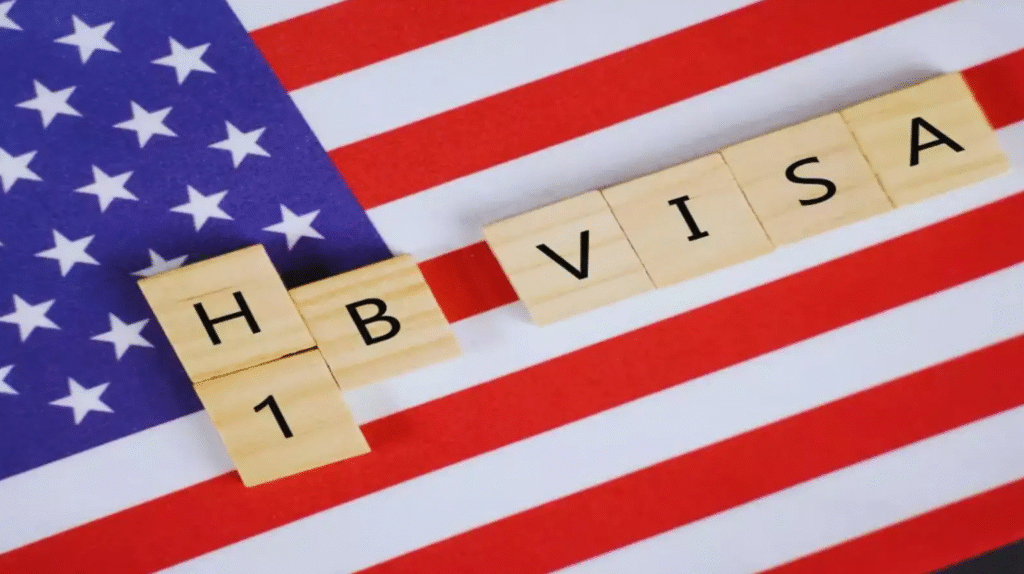
Another factor driving this transformation is the rise of remote work and offshoring models post-Covid-19. Instead of relocating talent overseas, multinational firms are increasingly comfortable working with Indian professionals from within India. This allows companies to tap into the same expertise without navigating the tightening visa landscape—while keeping more value creation inside India.
For Indian startups and tech talent, these challenges could become a launchpad for self-reliance. By deepening their skills, innovating locally, and forging global partnerships without leaving Indian soil, workers can help shape a more resilient and entrepreneurial ecosystem.
At the same time, Indian IT firms may use this moment to diversify beyond the U.S. market, exploring opportunities in Europe, Asia, and other regions with fewer immigration hurdles. Such moves would help India reduce its overdependence on the American tech sector and establish a more balanced global footprint.
Also Read :
ABC suspends Jimmy Kimmel show off air ‘indefinitely’ over Charlie Kirk comments
‘Anaconda’ 2025 Trailer: Jack Black, Paul Rudd join forces in meta horror reboot
Who is Karen Attiah? Why Did The Washington Post Fire Its Opinion Columnist?

